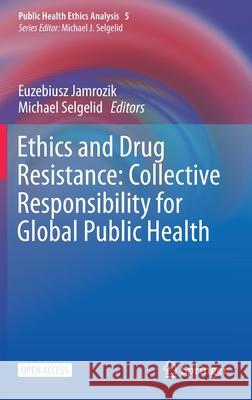Ethics and Drug Resistance: Collective Responsibility for Global Public Health » książka
topmenu
Ethics and Drug Resistance: Collective Responsibility for Global Public Health
ISBN-13: 9783030278731 / Angielski / Twarda / 2020 / 448 str.
Kategorie BISAC:
Wydawca:
Springer
Seria wydawnicza:
Język:
Angielski
ISBN-13:
9783030278731
Rok wydania:
2020
Wydanie:
2020
Numer serii:
000444190
Ilość stron:
448
Waga:
0.82 kg
Wymiary:
23.39 x 15.6 x 2.54
Oprawa:
Twarda
Wolumenów:
01
Dodatkowe informacje:
Wydanie ilustrowane











